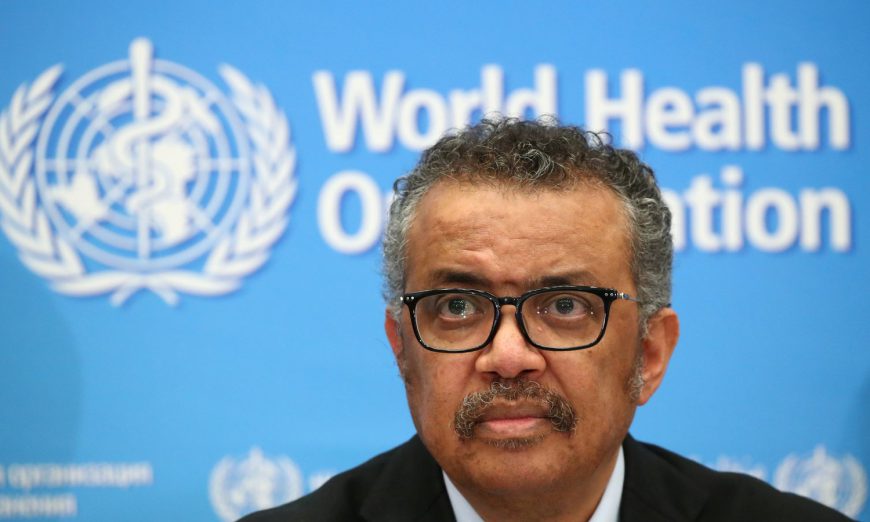With record high cases across the globe, the World Health Organisation has said that the Coronavirus pandemic has entered a “new and dangerous phase”. The number of new cases reported two days back “were the most in a single day so far” at 150,000. The recent observation was made by WHO Director-General Tedros Adhanom Ghebreyesus during a press conference from the agency’s Geneva headquarters.
The warning came as it emerged the virus was present in Italy in December, months before its first confirmed cases and about the same time as the disease was first reported in China.
The virus, which has now killed more than 4,54,000 people and infected 8.4 million people worldwide, is surging in the Americas and parts of Asia even as Europe starts to ease restrictive measures.
Lockdowns imposed to halt the spread of the disease have caused crippling economic damage, but the WHO said the pandemic still posed a major threat. “The world is in a new and dangerous phase. Many people are understandably fed up with being at home… but the virus is still spreading fast,” WHO chief Tedros Adhanom Ghebreyesus told a virtual press conference.
A vaccine remains months off at best despite several trials, while scientists are still discovering more about the virus, its symptoms and the extent to which it may have spread before being identified.
Italian researchers discovered genetic traces of coronavirus in samples of waste water collected in Milan and Turin at the end of last year, and Bologna in January, the ISS institute said. Italy’s first confirmed cases were not until February. The results “help to understand the start of the circulation of the virus in Italy,” the ISS said.
Italy was the first European country to be hit by the virus and the first in the world to impose a nationwide lockdown in early March.
Many European countries followed suit, and most have only begin reopening this month after painful shutdowns that devastated their economies. Facing the biggest recession in the EU’s history, leaders on Friday held a virtual summit on the European Commission’s proposal for a 750 billion euro ($840 billion) rescue fund.
However they fell short of reaching a deal on a plan that has been seen as a key gesture of solidarity and unity for the troubled bloc.

